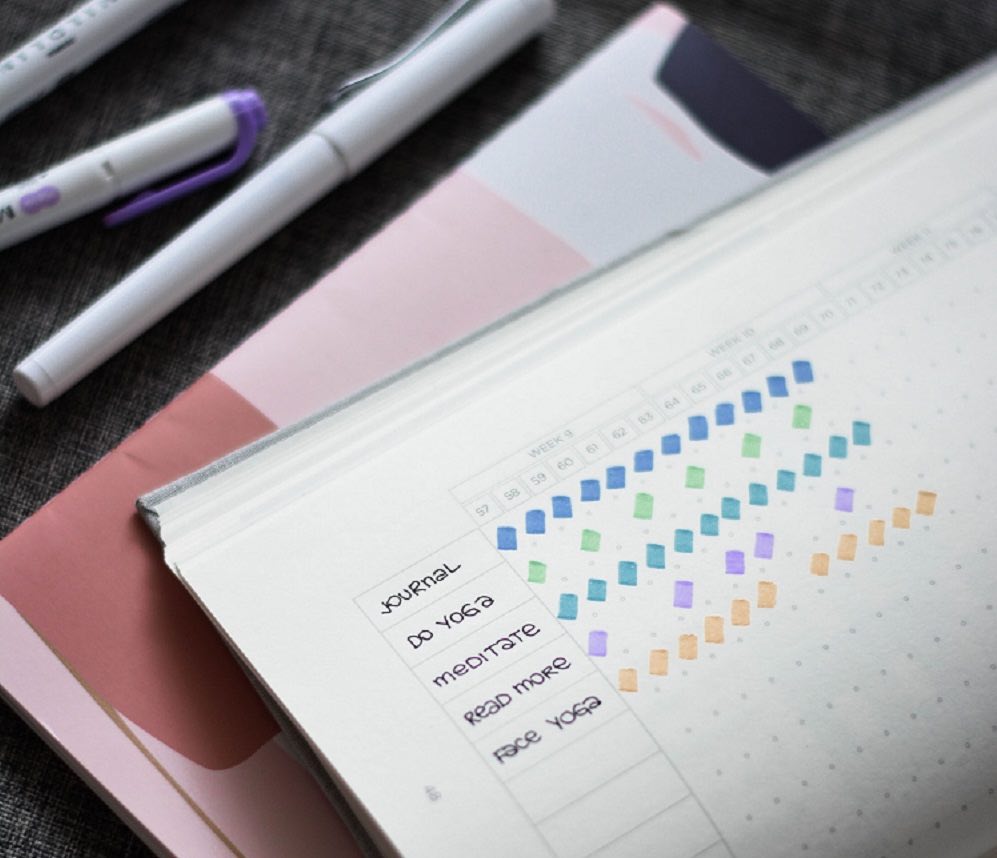6 Habits of People with Good Credit Scores
A good credit score isn’t something you achieve overnight—you have to invest in your credit, and one of the best ways to do that is with some everyday habits that can boost your score for the long haul.

Whether you’re just starting out and building credit from scratch, working to rebuild your credit after some slip-ups, or already happy with your credit score and trying to maintain it, it helps to know what people with good credit have in common. Here are 6 common habits of people with good credit scores:
1. They pay their bills on time, every time.
Your payment history is the most heavily weighted factors affecting your credit score, accounting for approximately 35% of your score. It’s heavily weighted because it shows lenders whether you’ve been reliable in making on-time payments in the past—an indicator of whether you’re likely to pay back new debts in the future. For this reason, even one or two late payments can seriously hurt your credit.
Pro Tip:
Many people with good credit scores rely on technology to help them stay on top of their payments. Automatic bill pay, balance alerts, and online calendar reminders are all great ways to keep your bills top of mind. You can also try asking your creditors to change your due date to line up better with your paycheck.
2. They spend within their means.
The second biggest factor used in calculating your credit score is your credit utilization ratio, which measures how much of your overall credit limit you are using. A high credit utilization tells lenders that you may be overextended and may not be able to handle more credit responsibly. Keeping your utilization ratio below 30%1 is a good goal, but the lower the better. In addition to keeping your utilization ratio low, keeping your spending in check can make you less likely to find yourself short when your bills are due.
Pro Tip:
People with great credit typically track their spending and expenses and stick to a budget. Watch and learn how to build a budget like a pro. If you’re still struggling to stick to your budget, check out these hacks to cut back on spending and some tips on how to avoid overspending on a big purchase or project.
3. They think twice before applying for credit.
Every time someone pulls your credit, an inquiry is documented on your credit report. One hard inquiry is unlikely to affect your score by more than a few points however, many hard inquiries or opening several new lines of credit in a short period of time can be more detrimental. Lenders who see that you have numerous recent inquiries may worry that you are applying at several places because you’re unable to qualify for credit or you are desperate for money.
Pro Tip:
For starters, people with good credit scores typically only apply for new credit if they need it. When they do need credit, they are strategic about rate shopping. When it comes to mortgages, auto loans, and student loans, scoring companies know that it’s smart to shop around for the best rate, so they treat multiple inquiries for the same loan during a certain time window as just one hard inquiry. People with good credit scores do their rate shopping within a short time window, which varies from 14–45 days, depending on the scoring company.
Folks with great credit also take advantage of soft inquiries. Many online lenders allow you to check your rates or see pre-approved loan offers with just a soft inquiry. This allows you to gather information without hurting your credit score. Be sure you know which type of inquiry will be submitted before you provide your personal details. Learn more about how applying for credit impacts your credit score.
At Upgrade, when you check your rate for a personal loan we perform a soft inquiry on your credit report, which does not impact your credit score. If you receive a loan through Upgrade, we will perform a hard inquiry, which may impact your credit score. A new borrower may see a small drop in their credit score when they receive a new loan, but the score typically climbs back up after the borrower makes a few on-time payments.
4. They use different types of credit.
The number and mix of credit accounts that you have—credit cards, auto and student loans, mortgages, etc. —all contribute to your credit score. Generally, having more open accounts translates to a better score because it means you’ve been approved for credit by more lenders. Additionally, having a diverse mix of revolving credit and installment loans can increase your score.
Pro Tip:
People with great credit scores typically use more than one kind of credit. While you should never take on financing that you don’t need or can’t handle, your credit mix is worth considering. For example, if you’ve avoided credit cards altogether, you might think about opening one, charging a small amount each month, and paying it off immediately.
Before opening any new accounts, make sure you understand the different types of financing and consider what will work best for your situation. Check out our resources on the differences between revolving and installment debt, fixed vs. variable rate credit, and how to decide between a personal loan and credit card.
5. They develop a long track record.
A longer credit history usually translates to a higher credit score – specific factors include how long your credit accounts have been open (the age of your oldest account, the age of your newest account, and an average age of all your accounts), how long specific credit accounts have been established, and how long it has been since you used each account.
Pro Tip:
Be patient – it takes years to build good credit. You can’t go back in time and change the date when you opened your first credit card, but keeping your oldest account open can help. Unless you’re paying high fees or find that you’re unable to resist the temptation to spend, it’s probably best to keep that first card open, even if you don’t use it anymore. Learn more about why you should think twice before closing that old card account.
6. They monitor their credit and protect their identity.
Whether it’s the result of an innocent reporting error or the malicious act of a fraudster, inaccurate information in your credit profile can undo years of excellent credit behavior. The good news is that there are tools in place to monitor your credit profile and processes to dispute and fix errors.
Pro Tip:
Sign up for a free credit monitoring service that provides alerts when something in your credit profile changes. When you see a change, make sure it’s legit. Get a copy of your credit report and review it once a year (you’re entitled to a free copy once every 12 months based on the Fair Credit Reporting Act), and take steps to fix any errors on your credit report.
In addition to monitoring your credit, be vigilant about identity theft, personal loan scams, and other fraudulent activity that can have a big impact on your credit profile.
Bottom Line
You can’t build a good credit score overnight, but you can adopt some everyday money habits to help boost your score for the long haul. Keep an eye on your spending and payment behavior, be mindful about opening and closing new accounts, and have some patience. If you’re looking to build a good credit score, a great first step is to find out where you stand. Check out Upgrade’s Credit Health to get your free credit score, as well as monitoring and alert services.


